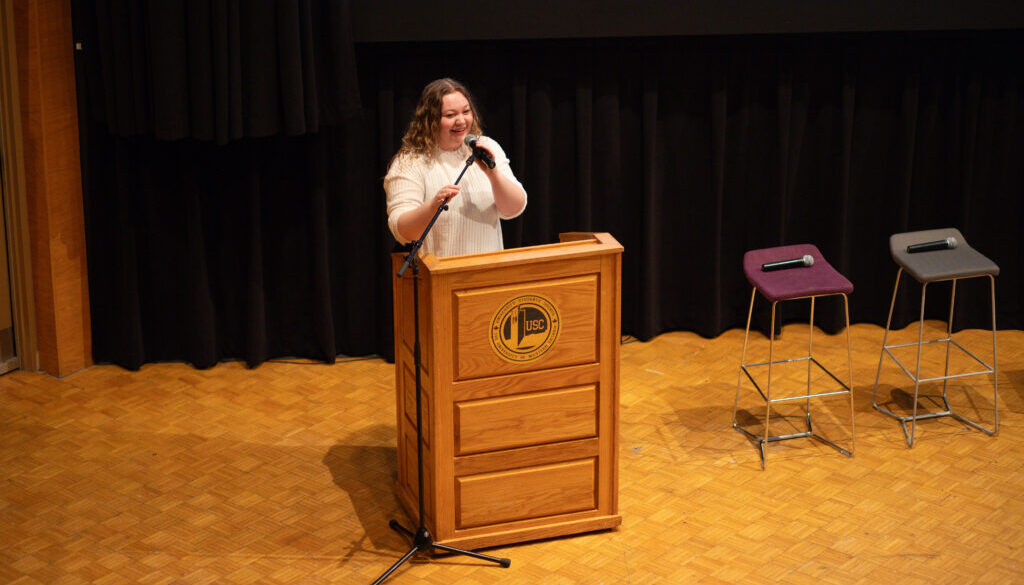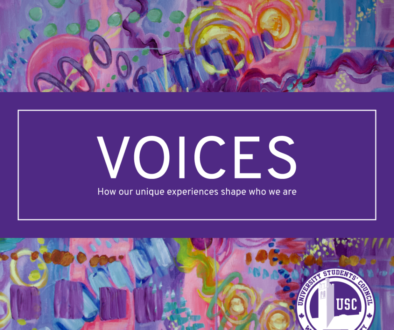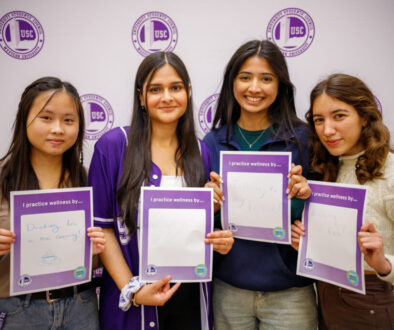The Importance of Mentorship
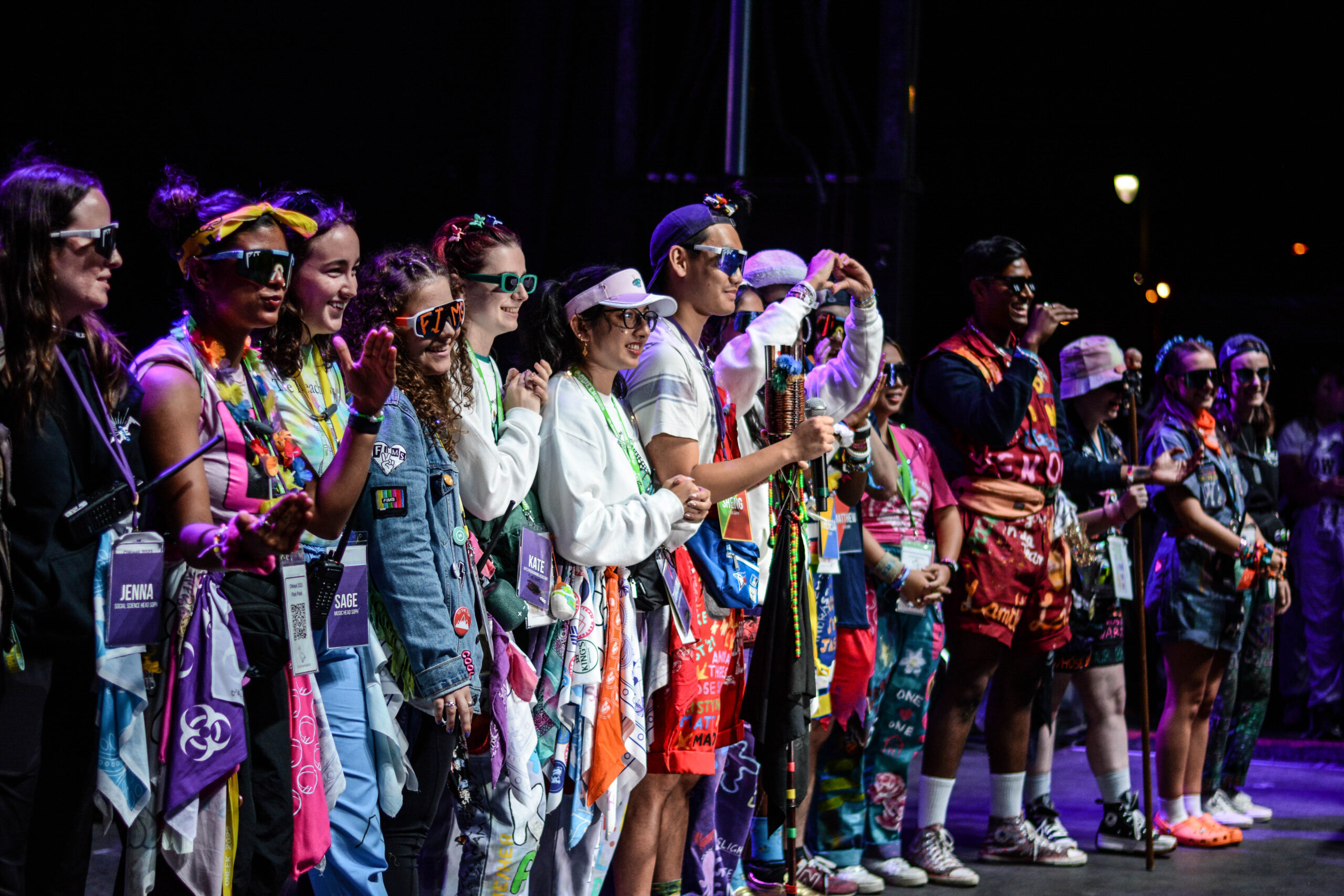
By Sara Paulo
The university experience, with its diverse challenges and opportunities, can be overwhelming and unfamiliar for students. Throughout their academic careers, students encounter stress, uncertainty, and a prevalent sensation known as impostor syndrome—a sense of unworthiness despite proven competence and success. The feeling of “Am I good enough?” or “Can I do it?” resonates with nearly every student, reflecting the impact of impostor syndrome on their experiences, goals, and passions. These emotions often leave us feeling lost, confused, and in need of guidance, highlighting the crucial role of mentorship, especially in new environments like university play.
At Western University, the University Student’s Council is a hub for students to seek mentorship, fostering comfort and confidence to embrace new opportunities and take risks. Mentorship instills the belief that “I am capable” and encourages students to embrace challenges.
For myself, the mentorship I received from Council members last year was instrumental in broadening my experiences and venturing into new opportunities. Each person I connected with shared invaluable insights and advice and served as a source of inspiration, encouraging me to constantly push my limits. Their mentorship reminded me to trust my abilities and to stop self-limiting beliefs that would otherwise hold me back.
The mentorship I received from my faculty soph during my first year significantly contributed to my academic success and achievements. Her firsthand experience as a first-year student helped me navigate the challenges of being a student and understand professors’ expectations. I was a bit reserved at the time, yet her guidance motivated me to put myself out there and make as many connections as possible, ultimately leading me to USC.
Jessica Kerr, the head soph of the Faculty of Engineering at Western University, shared a similar experience. Her first-year soph inspired her to break out of her shell after moving five hours away from home, feeling shy and ultimately very nervous about entering a male-dominated field. “My soph was always checking in on me with my academics, met with me for coffee catch-ups, and acted as a great mentor,” Kerr shared.
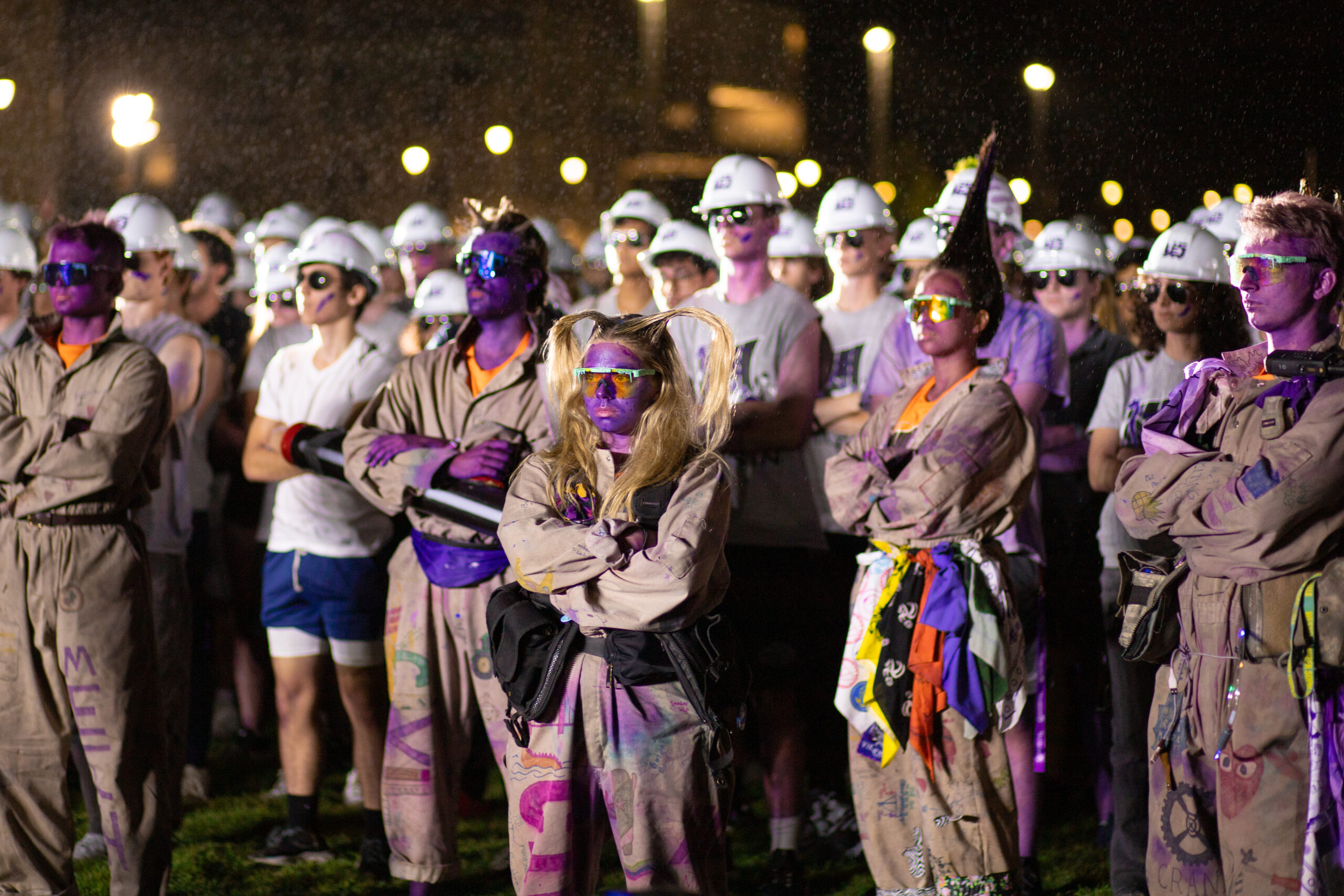
Sophs, dedicated student volunteers, are an essential aspect of orientation week and valued members of the University Student Council. They primarily support incoming students’ academic transition to Western and direct them to appropriate resources when needed. Often considered some of the most valuable mentors, especially for first-year students, they offer indispensable support throughout the year.
Kate Armstrong, the head soph of the Faculty of Arts and Humanities, also reflected on the profound positive impact her own soph had during her first year. “Amidst the uncertainty and apprehension of OWeek 2021, my sophs exhibited such passion and resilience through it all. I think there is no one better to welcome students than students– we know the ins and outs of first year and can provide tremendous reassurance to first years.”
When asked about the benefits of mentorship, Armstrong explained that sophs serve as “non-judgmental ‘first friends’ whom students can rely on for advice regarding courses, clubs, rental housing, and various other aspects, in a manner distinct from faculty or parents.”
For those interested in mentoring, Kerr advises exploring diverse opportunities, including sophing. “When applying to mentorship roles, it is so important to be true to yourself and passionate about helping others and your program.”
Mentorship can open new doors and avenues for students, and mentors often have extensive networks and can introduce mentees to valuable contacts, expanding their professional circle. Thanks to the sophing program, Kerr found a new passion and community of people. In first year, her soph introduced her to the Western Engineering Rocketry Team. Though she had little experience in the field, her soph reassured her that she could make an impact. Thanks to her encouragement, Kerr successfully worked her way up to becoming this year’s Chief Engineer and Co-Captain.

Mentorship acts as a gateway, providing mentors with extensive networks that can introduce mentees to valuable contacts, broadening their professional circles. Kerr’s involvement in the sophing program led her to discover a new passion and community. Her soph introduced her to the Western Engineering Rocketry Team. Despite her limited experience, her soph instilled confidence, guiding her towards becoming this year’s Chief Engineer & Co-Captain. “I’m immensely proud of my journey and the growth of the Rocketry Team, contributing to our first-ever successful launch as well as increasing membership of the team exponentially this year,” Kerr expressed.
Embracing a mentorship role extends beyond personal growth; it cultivates leadership skills and expands networks. Taking on the role of a soph, Armstrong has witnessed numerous opportunities unfold for her. “I’ve established incredible connections that have paved the way for remarkable experiences. Joining the Arts and Humanities Team led to my involvement with TheatreUSC, culminating in an internship with the Grand Theatre. My personal and professional experiences have been shaped by the sophing program.”
For students looking to get involved with the USC and to become a mentor, soph applications are currently open and will be accepted until February 2nd at 11:55pm. For additional details and application, visit https://westernusc.ca/jobs/faculty-soph/
Mentorship continues to be one of the main goals of the USC in improving the university experience for students. Whether through sophs, coordinators, clubs, faculty councilors, presidents, or the executive team, there is always a student willing to guide another student on their path to success.
